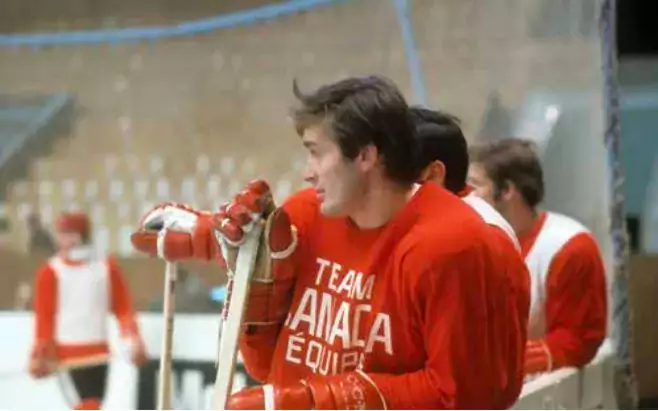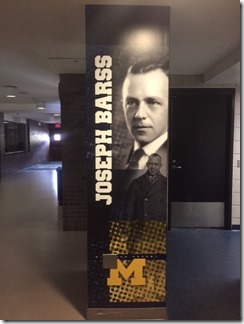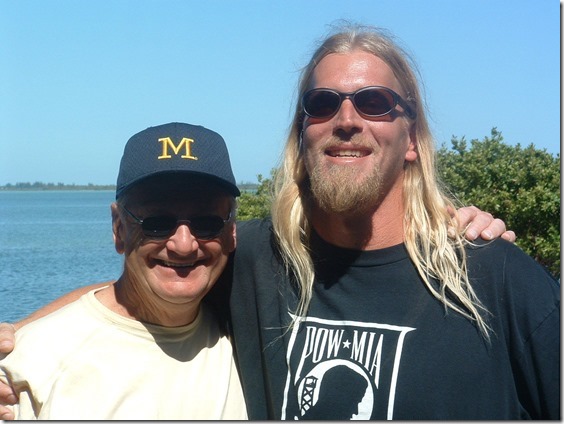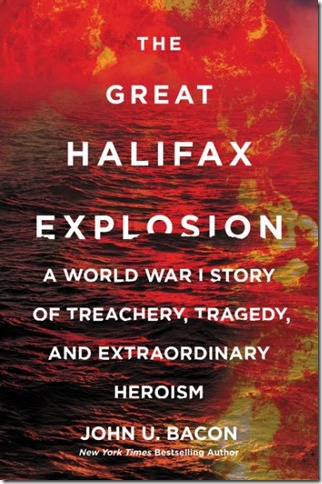book excerpts

Ed- The following is an excerpt from John U. Bacon’s latest book, The Greatest Comeback, How Team Canada Fought Back, Took the Summit Series, and Reinvented Hockey.  If you’re familiar with the 1972 Summit Series, according to its principles and participants this is the best and most comprehensive accounting of that incredible sports moment of many written.
If you’re familiar with the 1972 Summit Series, according to its principles and participants this is the best and most comprehensive accounting of that incredible sports moment of many written.
If this is new to you, this book is the best introduction to one of the consequential moments in sports history, when East met West, when the hubris of liberal capitalism crashed into the cheap hypocrisy of totalitarian communism. It was the battle that inspired Rocky vs Drago, and introduced North America to the beautiful game played by the Soviets.
And all these guys talked. The executives, coaches, players, and superstars of the next generation who were inspired by what they saw all agreed to let Bacon craft the definitive version of one of the great sports stories of all time. Well, most of it—Mark Messier wrote the foreword. And in case the last sentence wasn’t a clue, this book is also, for my (U.S.) money, the most Canadian thing ever written.
------------------------------
In September of 1972 Team Canada opened the newly created Summit Series as one of the most heavily favored teams not merely in the history of hockey, but in the history of sports.
Just about every Canadian fan, journalist, player, and coach expected the greatest hockey team ever assembled to crush its untested opponents eight games to zero. Team Canada’s leaders were so certain of victory that they traded away every advantage the Soviets could conjure, including the referees. They’ve also invited 35 players, two full teams’ worth—including Red Berenson—to their training camp in Toronto, and promised all of them that they would get into at least one game. Anticipating little competition from the Soviets, they figured they could use the older players for the first four games in Canada, then let the younger players mop up the last four games in Moscow.
But that is not, of course, how it worked out.
As we join the story Team Canada is now down 1-2-1 in the eight-game series, needing to win three of four in Soviet Russia to avoid a nation-shattering collapse. Three of their teammates are flying home, angry. The 300 Canadian steaks and pallets of Labatt's they had sent over have disappeared, now circulating through Moscow’s black market. Their wives are suffering every indignity the communist officials can come up with. The press is calling them thugs. The commissioner of the NHL is calling them entitled. And 85 percent of their countrymen—more than saw the moon landing—are watching.
[After the jump: Coach Red is born]
Bo visiting Steve Everitt in 2003 [courtesy of Amy Everitt via]
Oh you think you’ve got the whole Bacon collection do you? Your Bacon shelf has the Bo one, the Rich Rod one, the aww poor Urban can’t get the pwiddy widdle Borens to like him one, the Cirque one, and a first edition of Brandon’s Lasting Lessons from when it was still called Endzone. You’ve even got that hockey one from back in the day, the Saunders one, and the more recent one where they blew up Halifax during WWI and Michigan (spoiler alert) got a hockey program.
You don’t have it. Bacon’s been at this writing thing longer than your favorite bloggers have been drawing breath, and before there were books there were articles for a dozen regional and national publications tracking Bo Schembechler, Gordie Howe, Ernie Harwell, and Tom Izzo, plus first-person stories about getting killed playing the U.S. Open golf course, skating in a Detroit Vipers hockey practice, and lifting in Michigan football’s weight room.
But you can have it because he put his 40 best articles in a book (and the 41st is slated to appear in ours). This best-of Bacon book is called, incidentally, Best of Bacon. He gave me first crack at an excerpt and I’ve chosen the one below.
This excerpt, “Bo’s Back Where he Belongs,” describes Bacon’s first week following Bo Schembechler, back in 1996, which led to Lasting Lessons (the Bo one).
Bacon Tour 2018: Bacon will be appearing at the Ann Arbor District Library May 11, Chicago May 23, Traverse City’s Indigo Hotel May 29, and Nicola’s Books in Ann Arbor June 12. You can find more info on johnubacon.com.
On with the shew
-------------------------------
Bo’s Back Where He Belongs
I first met Bo Schembechler in 1975, when I was a ten-year-old kid asking for his autograph at a Michigan hockey game—so nervous I could not think of my own name. I met him again in August of 1996, when I was writing a section on Fielding Yost for a book on Michigan football. We got along, and he agreed to let me tag along for a week in October of 1996—a very generous offer, to say the least.
By mid-week, I already knew I had a great story, and called my editor at the Detroit News from a pay phone (that’ll date you) in Grand Rapids, urging him to spare all the space he could. He did, giving me 2½ pages, and the story earned national awards. When I met Bo in his office four days later, he told me, “Well, Bacon, you didn’t screw it up—and frankly I’m surprised.” In the next breath he asked if I wanted his papers—16 big boxes’ worth, with everything from correspondence to transcripts to game plans. I soon realized he had given me the raw materials for the book we would write together ten years later, my first bestseller. But it started with this story.
[the article AFTER THE JUMP]
John U. Bacon’s latest book, The Great Halifax Explosion: A World War I Story of Treachery, Tragedy, and Extraordinary Heroism, debuts November 7. The book was described by George Will as “an astonishing episode of horror and heroism,” and by David Maraniss as “absorbing from first page to last.” Bacon will start his book tour at 7 p.m., Tuesday night, November 7, at Michigan’s Rackham Auditorium, where he’ll be introduced by Michigan Radio’s Cynthia Canty. The book is available through Harper-Collins, and will be found on Amazon (pre-order), Barnes & Noble, Indies, Nicola’s, Literati, and elsewhere.
This exclusive excerpt focuses on the book’s central figure, Joseph Ernest Barss. After being wounded in World War I, he returned to Nova Scotia to rehabilitate when a ship blew up in Halifax Harbour. After spending three days helping victims, he was inspired to attend the medical school at the University of Michigan, where he started Michigan’s hockey program. completing one of the most remarkable journeys of any Michigan Man.
----------------------------------
Joseph Ernest Barss is one of the most important people in the long, rich history of Michigan athletics. But you wouldn’t have guessed that from his background – and certainly not from his family’s.
 |
| The story of the founder of Michigan hockey goes through the greatest tragedy in Canadian history |
His great-grandfather, Joseph Barss Jr., was the most notorious privateer in Canadian history, capturing, sinking, or burning more than 60 American ships during the War of 1812, making him America’s most wanted man.
Three generations later, Joseph Ernest Barss was born in India in 1892, the son of Baptist missionaries. He grew up in Wolfville, Nova Scotia, just a few miles from Windsor, Nova Scotia, the birthplace of hockey. He attended the hometown Acadia University, which his grandfather helped found, where Ernest starred in football, hockey, baseball, and boxing.
“He was sort of a stocky fella, big thighs, who carried himself very straight,” his son, Dr. Joseph Andrew Barss, told me in 1999. “A tough guy. His ankles were so strong, he didn’t have to lace up his skates.”
After graduating cum laude in 1912 at age 19, Barss moved to Montreal, where he rose to become a district manager for Imperial Oil, earning $1,500 a year – big money for a young man at the time. He seemed to have it all: a great career, money, and fun. But Barss’s letters give the unmistakable sense that he was not fulfilled.
That changed in 1915, World War I’s second year, when one of Barss’s rowing club friends read out loud that the Germans had gassed a famed Canadian unit, the Princess Patricia’s Canadian Light Infantry (PPCLI) killing 461 of the 1,068 men, including many friends of theirs from Montreal. The four men were “filled with indignation,” Barss wrote, and decided to enlist right then and there.
In his early letters back to his parents, Barss was bursting with enthusiasm for the cause, and the role he had trained to play: machine gunner. The reason the PPCLI was in such need of reinforcements, he explained, was because “there are only 53 left out of 1500. So we have some reputation to keep up. Of course, as you have probably noted, I am full of this thing. So are the other fellows.”
[Hit the JUMP for how Halifax became a WWI battleground in a flash, and Canada became a United States friend in a fortnight, and how this all resulted in Michigan starting a hockey program]
----------------------------------


25